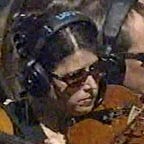A Key Quote from Rambo, Or Thinking About Why We Are Reading Trauma and Theology Together…
Trauma theory, like deconstruction, is a way of reading that exposes the gaps and fissures in the texts. In so doing, it unearths dimensions of the texts that otherwise lie buried. These readings reveal the ways in which language exceeds theory, thus exposing the insufficiency of claims that reduce language to frameworks of meaning. The significance of trauma theory is that it tracks this remainder, this excess. This persisting, this remaining, give rise to a unique series of relationships that center around an attempt to give expression to what cannot be fully known. The challenge of trauma is the challenge of witnessing to a phenomenon that exceeds the categories by which we make sense of the world. These literary readings expose the insufficiency of our frameworks for understanding and also point to a different relationship that we have to language, given these traumatic dynamics. Trauma theory shares with deconstruction a common misperception: that it is a theory to be applied. Instead, trauma theory and deconstruction both enact ways of reading that expose certain dimensions of texts. Trauma theory that draws from deconstruction is a practice of unmasking, unearthing, and tracking what escapes interpretation. Rather than importing insights from trauma into the discourse of theology, I turn to texts within the tradition to listen for the language of remaining that I hear in the witness literature. The relationship between theology and trauma theory does not rest in the degree to which theologians employ insights from trauma into the discipline of theology but in a resonance between two languages. Theology hears itself differently in the language of trauma; in turn, trauma theory hears itself differently in the language of theology. This witness from within a discourse is made possible through another, but this meeting point is the site of trauma. At the site of trauma (with its epistemological ruptures, etc.), discourses are pressed to their limits and become something new in this encounter. The language of trauma turns theology to its own language and texts, illuminating aspects that would not otherwise be noted or recognized. How are the disorientations of time, body, and word evidenced in texts? What truths might emerge through these disorientations, through this shattering? This lens of trauma involves, to some degree, defamiliarizing these texts, pointing to the enigma of time, body, and word in the language of theology. It requires unmasking certain epistemological assumptions that govern familiar interpretations of these biblical and theological texts.
Rambo, Shelly, Spirit and Trauma: A Theology of Remaining, Westminster John Knox Press Kindle Edition, 2011, 31–32.
